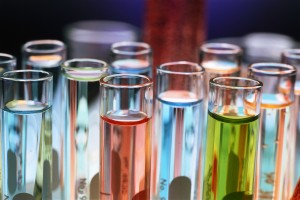I am often asked, by doctors and laypersons alike, what is meant when someone talks about an “acidic pH” or “acidic body chemistry”, so I’d like to try and provide a simple explanation here (I’ll try to keep as much of the biochemistry out of this as possible).
Your body chemistry is the sum total of all your metabolic processes (like breathing, tissue repair, fighting off virus/bacteria, reaction to stress and energy production) plus what you put into your body (i.e., foods, liquids, toxins, etc.).
The internal environment of our bodies is ideally maintained at a pH of around 7.30-7.40. This means our internal environment is slightly alkaline. In order to maintain this alkaline state, we need adequate oxygen, water, and acid-buffering minerals available as we are eliminating waste products.
When such an alkaline environment is maintained in the body, our metabolism, enzymes, immune system, and repair processes function at their best. Many processes present a challenge to this balance due to the production of acid waste products within the body, including stress, poor diet and inflammation. We need to have mineral buffering reserves to combat and neutralize these acids. The body has several buffering mechanisms in place to maintain this balance, but the buffering capacity available to any one of us is limited and must be replenished. That’s why a diet that is predominately alkaline-forming (i.e., high in whole vegetables and fruit) is essential to the maintenance of good health.
When we don’t take in enough alkaline-forming nutrients, the body starts to break down to release the necessary nutrients to buffer the excess acids. Over time, this can lead to numerous health dysfunctions, including fatigue, pain, inflammation, cognitive decline, depression, arthritis and many others.
When we speak of an “acidic” body chemistry, we are simply saying that the body has encountered more acid-forming substances than is optimal, which can lead to detrimental changes in our health. What we put into our bodies on a daily basis has the largest impact on your body chemistry, so the foods and drinks that you consume, as well as the stress that you experience and the air/pollution that you breathe in go a long way in determining your long-term health and vitality.
Having an “acidic pH” doesn’t mean your blood has actually turned acidic – if this were the case, you’d die on the spot. However, having an “acidic” body chemistry is certainly setting you up to die sooner and suffer any number of maladies along the way.

